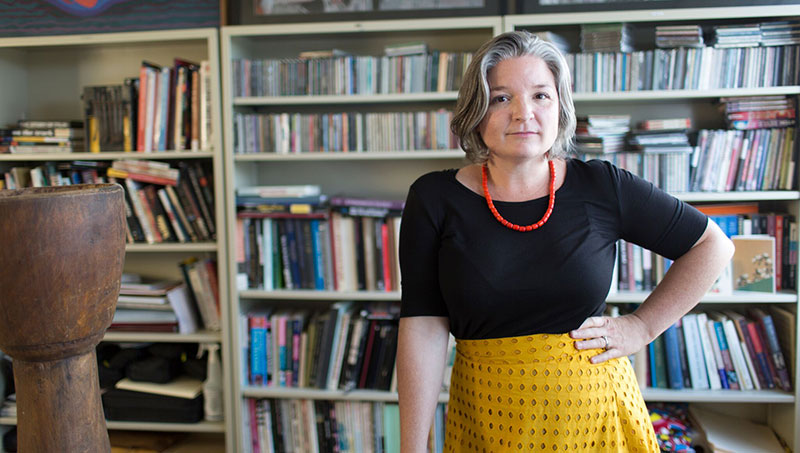Note to students: After you’ve watched the video below, please compose a detailed question for Dr. Haskell and submit your question at the bottom of this page by Wednesday, June 10th at 11:59pm (please still do this if you’ve missed the deadline; you will earn partial credit for a late submission).
The instructor of your section will select one student question to bring into our full-group discussion with Dr. Haskell on Thursday evening.
Music during Catastrophe
Erica Haskell, Ph.D.

Erica Haskell is the Chair of the Division of Performing Arts, the Chair of the Department of Music and Associate Professor of Ethnomusicology at the University of New Haven. She holds a Ph.D. and MA in ethnomusicology from Brown University and a BA in music performance from Mills College (CA). She teaches courses in The Politics of Music, Film Music, Illegality in Theater and Music, World Music and American Roots Music.
Haskell is the co-founder of Free Dirt Records a record label that also offered distribution, management and publishing administration services. Free Dirt has released albums by Pokey LaFarge, Anna and Elizabeth, Hazel Dickens & Alice Gerard, Rachel Baiman,Vivian Leva and The Wilders among others. She is also co-producer of the critically acclaimed American folk music album Starlight on the Rails by U. Utah Phillips released on AK Press and Daemon Records. Haskell founded a music-recording project in three Hungarian refugee camps which was the subject of articles about refugee music in the Utne Reader and ai magazine (Art International).
She has spent more than a decade living abroad; in Cambodia, Morocco, Tunisia, Bosnia Herzegovina and throughout Europe. In her dissertation she explored the politics of music, applied ethnomusicology, and the involvement of international humanitarian organizations in cultural events and projects in Bosnia-Herzegovina. She is particularly interested in the interaction between and intersection of cultural activities (such as radio, festivals and record production which are the subjects of three of the case studies) and international projects in humanitarian assistance, democracy assistance, economic development, peace initiatives and civil-society building within the context of historical periods of occupation.